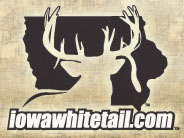Here's what I found on the USDA's web site. It's sort of long but it does say bone is not allowed along with just about everything else.
May 21, 2003
Subject: Clarification of the Prohibition of the Importation of all Live Ruminants, Ruminant Meat, Ruminant Meat Products and Other Ruminant Protein Products from Canada Due to Bovine Spongiform Encephalopathy (BSE)
To: Regional Directors, VS
Veterinary Regulatory Support, PPQ
On May 20, 2003, Mr. Bobby R. Acord, Administrator, Animal and Plant Health Inspection Service (APHIS) received information from D. Sarah Kahn, Deputy Chief Veterinary Officer and Director, Animal Health and Production Division, Canadian Food Inspection Agency, reporting a confirmed case of bovine spongiform encephalopathy. Due to this reporting, the U.S. Department of Agriculture (USDA), APHIS, Veterinary Services (VS) is placing a prohibition on the importation of all live ruminants (such as cattle, sheep, goats, cervids, camelids), ruminant meat, ruminant meat products, and other ruminant products from Canada. This prohibition is effective as of 1:30 p.m. e.s.t., May 20, 2003. APHIS believes that emergency measures are necessary to minimize risk to livestock, livestock producers and other industries in the United States.
We are suspending the following animals and animal products from Canada:
1. Live ruminants (imports and transits (except for transits of U.S. origin ruminants));
2. Processed animal protein (such as meat and bone meal, meat meal, bone meal, blood meal, protein meal, etc.), regardless of species of origin (not intended to exclude human food in prepackaged, final form);
3. Animal feed (unless demonstrated to be of exclusively milk or non-animal origin);
4. Pet food (unless animal protein is non-mammalian origin, under permit conditions);
5. Milk replacers containing animal fat or non-milk animal protein;
6. Ruminant blood and blood products;
7. Animal vaccines containing ruminant-derived products;
8. Ruminant offal (internal organs, intestines and tissues not otherwise specified);
9. Ruminant casings (except for collagen casings derived from ruminant hides);
10. Ruminant glands (including but not limited to adrenal, pancreas, thymus, thyroid, pituitary, etc.);
11. Ruminant gland extracts/derivatives;
12. Unprocessed ruminant fat;
13. Processed fats and oils;
14. Nutritional supplements containing specified risk materials (SRMs) ? both in bulk and in final finished package for human or animal consumption;
15. Ruminant bones;
16. Tankage;
17. Tallow, except for tallow derivatives;
18. Ruminant bone-derived gelatin for animal use (permit and additional conditions will allow imports for non-animal/industrial use);
19. Ruminant-derived cartilage and/or chondroitin sulfate;
20. Non-hide derived collagen (exemptions similar to those for gelatin for non-animal use); and
21. Ruminant urine/urine derivatives.
22. Ruminant meat and meat products
The following animal and animal products are still eligible for entry: milk, milk products, ruminant hides and ruminant hide derived products, ruminant semen and embryos. Semen and embryo import protocols that include the BSE certification statements will be completed shortly. As we learn more information about the case of BSE in Canada, the restrictions placed on Canadian imports will be re-evaluated.
Thank you for your cooperation and support.
Karen A. James-Preston, DVM
Director
Technical Trade Services
National Center for Import and Export
United States Department of Agriculture
Marketing and Regulatory Programs
Animal and Plant Health Inspection Service
Veterinary Services
National Center for Import and Export
4700 River Road, Unit 40
Riverdale, MD 20737
Phone: 301-734-3277
Fax: 301-734-8226
APHIS - Protecting American Agriculture
An Equal Opportunity Employer
Click here for printable version (PDF)
U.S. Importers, Brokers and Other Interested Parties (PDF)
![shrug[1].gif](http://www.iowawhitetail.com/ubbthreads/images/graemlins/shrug[1].gif)
![shrug[1].gif](http://www.iowawhitetail.com/ubbthreads/images/graemlins/shrug[1].gif)



![893USA1-thumb[1].gif](http://www.iowawhitetail.com/ubbthreads/images/graemlins/893USA1-thumb[1].gif)
![brick[1].gif](http://www.iowawhitetail.com/ubbthreads/images/graemlins/brick[1].gif)